IBS SUPPORT
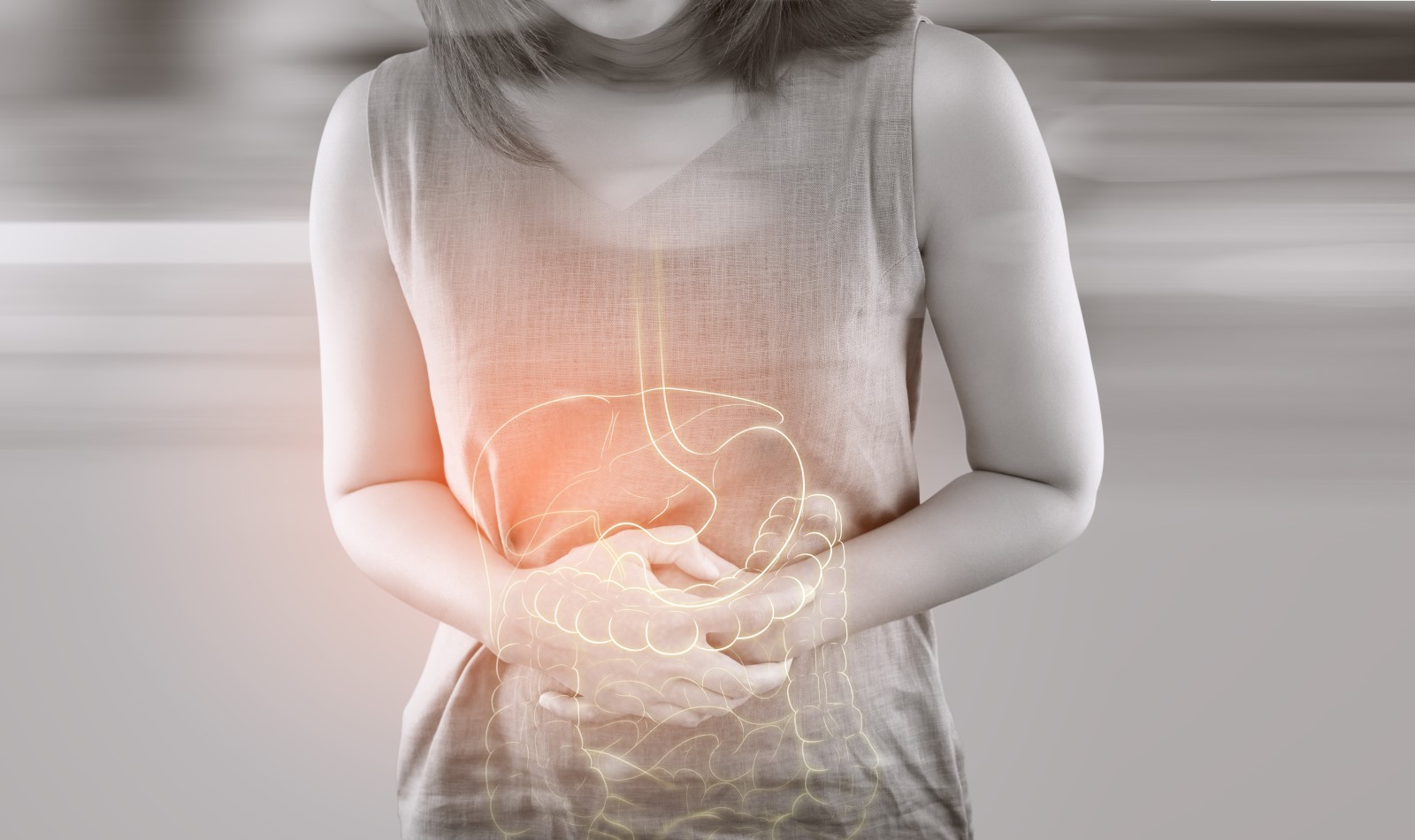
Do you have IBS (Irritable Bowel Syndrome)?
If there’s one thing that most people can agree upon, it’s that IBS, which stands for Irritable Bowel Syndrome, is a condition that you’ll want to get under control.
Some people may experience bouts of IBS on occasion while others experience IBS on an ongoing basis. Regardless of when and how you experience it, the great news is there are strategies out there that can help you overcome it. Read on to find out more.
Irritable Bowel Syndrome
Condition
A chronic gastrointestinal disorder that affects the large intestine causing diarrhoea, abdominal pain, cramps, bloating and flatulence.
- Common (More than 10% of the UK population suffer)
- Can require lab test or imaging
- Treatments can help manage condition
- Can last several years or be lifelong
Symptoms
The symptoms can differ for everyone. The most common are:
- Stomach pain or cramps – usually worse after eating and better after using the toilet
- Bloating – your stomach may feel uncomfortably full and swollen
- Diarrhea – you may have watery stools and sometimes need to go suddenly
- Constipation – you maybe straining and feel like you cannot empty your bowels fully
IBS can also cause:
- Breaking wind (flatulence)
- Passing mucus
- Tiredness and a lack of energy
- Feeling sick (nausea)
- Backache
We all know by now that we should be cutting back on the sugar in our diet plan. Sugar is not only going to spike blood glucose levels, potentially setting us up for diabetes, but in addition to that, it’s also going to give bad bacteria in our body something to feed on. Those who consume high doses of sugar in their daily diet often have gut environments that are far less than optimal and usually this leads to serious problems in terms of future health if not remedied.
Take A Quality Probiotic
If there’s one thing that you can do to not only improve your IBS symptoms but also dramatically improve your health as well, taking a probiotic is definitely it.
Most people do not currently have sufficient levels of healthy bacteria in their body and probiotics can help remedy this by growing your numbers.
A quality probiotic such as P3-OM will help you quickly multiply the levels of good bacteria you have present, allowing them to outnumber the levels of bad.
Remember, these bacteria are going to be key for helping you ensure that you can carry out digestive processes and for keeping your immune system strong – Up to 80% of your immune system resides in your gut.
The bacteria in your gut dictates what and how well you gut can digest food effectively. If you do not have the right amount of good bacteria to process your food this can lead to IBS symptoms.
-
P3-OM Probiotic Breakthrough
£14.99 – £159.99Price range: £14.99 through £159.99 — or subscribe to save 12%Rated 4.64 out of 5Select options This product has multiple variants. The options may be chosen on the product page
-
MassZymes & P3-OM Stack
£57.99 – £109.99Price range: £57.99 through £109.99Rated 4.68 out of 5Select options This product has multiple variants. The options may be chosen on the product page
IBS Support
We have created the most advanced and powerful probiotic P3-OM using a super strain of L-Plantarum. Travelling through your body from mouth, to gut, intestines and faeces, it targets and attacks the bad bacteria in our bodies at a cellular level. This helps us with absorption of food, the strength to fight infections and boosts our immune system.
P3-OM is a much stronger strain of L-Plantarum and why it works so effectively. Most probiotics do not work as they do not survive through the gut and are not potent enough.
FOR THE ULTIMATE IBS RELIEF COMBINE P3-OM WITH STRONG DIGESTIVE ENZYME MASSZYMES
MONEY BACK GUARANTEE – You can try now with no risk.
Backed By Science – Check out the study below which shows that the P3-OM probiotic L-Plantarum helps to alleviate IBS symptoms.
9 Natural Tips To Help Overcome IBS
Now that you have a good primer on what IBS is and some of the ways you can deal with it, let’s look deeper into a few of the natural tips and suggestions on overcoming this condition so that you can get back to enjoying your day.
1. Keep Your Stress Under Control
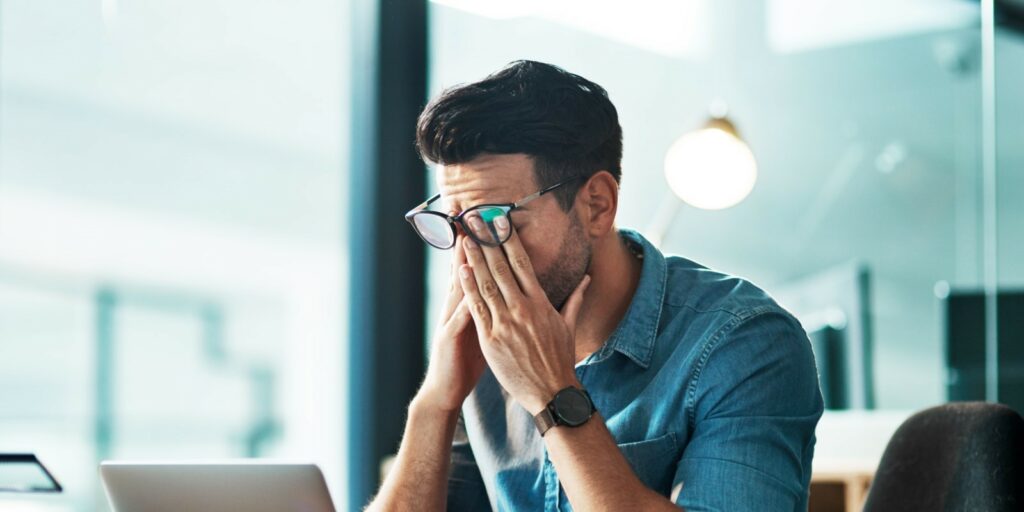
One of the predominant factors that can impact IBS sufferers is high levels of stress. Start paying attention to when your symptoms flare up. Do you notice they get a lot worse when you are heavily stressed out?
There may be something to that. You want to take all the steps and precautions you can to minimize your stress levels so that it isn’t impacting your digestive system.
When you are stressed or anxious, the natural flow of your digestive processes is altered and this in part causes major problems to occur.
In addition to that, those who are stressed out may not be breathing as well as they should, thus the flow of air in and out of the body is not optimal either. This also can lead to digestive distress.
Practicing good stress management via meditation, deep breathing, or relaxation techniques is critical, as was reported by the Journal of Psychosomatic Research.
2. Minimize Problematic Foods
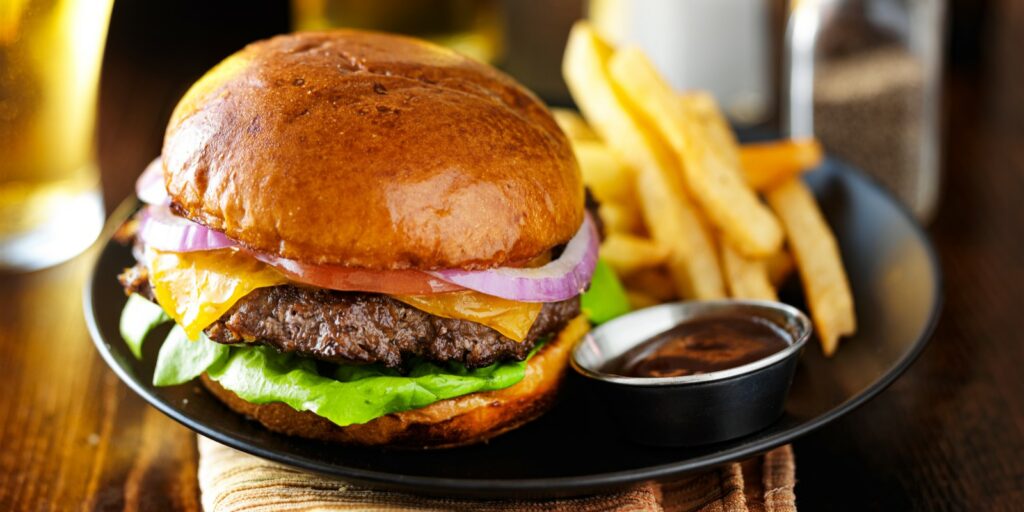
Okay, so if eating better for health isn’t motivating enough, what if the food choices you make directly impacted your IBS symptoms?
Well, they do. If you want to get control over this condition, you need to get control over what you’re putting into your mouth.
The biggest offenders for most IBS patients include fried foods, large servings of meats, dairy products, and any other dishes that are very high in the dietary fats.
Does this mean you should forgo fat altogether? Certainly not. Fat is a healthy and necessary part of your diet, but you do need to space out your dietary fat intake a bit and make sure that you are eating healthier sources.
Having a meal with 30 grams of fat purely from saturated fat for instance (think a cheeseburger and fries) is definitely not going to do your digestive system any favors.
Even in those who don’t suffer from IBS this can lead to digestive distress. Pay attention to how your body is responding to the various foods you are eating. Often it will offer clues as to what you can and can’t eat without running into problems.
It’s a great idea to keep an IBS journal where you make a note of any points where you are noticing significant symptoms and what foods you ate around that time that may have brought them on. This way, you can get a better idea of which things you must be avoiding.
3. Be Leery About Artificial Sweeteners
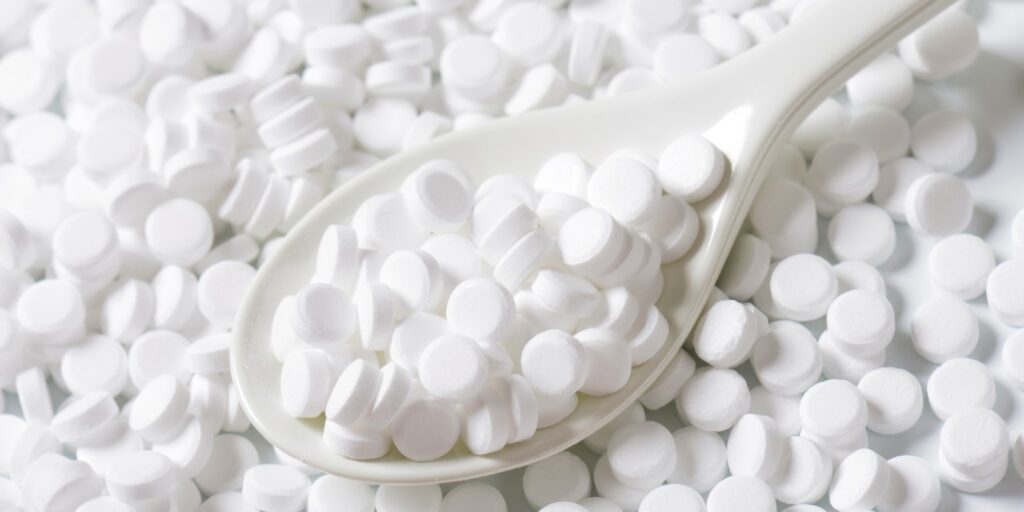
We all know by now that we should be cutting back on the sugar in our diet plan. Sugar is not only going to spike blood glucose levels, potentially setting us up for diabetes, but in addition to that, it’s also going to give bad bacteria in our body something to feed on. Those who consume high doses of sugar in their daily diet often have gut environments that are far less than optimal and usually this leads to serious problems in terms of future health if not remedied. Fortunately, a good probiotic such as P3-OM can help you get back on track as you give up the sweet stuff.
All of this said, don’t let yourself fall for the trap of artificial sweeteners. Many people go this route thinking it allows them to satisfy their sweet tooth and still keep their sugar intake in check.
That very well may be, but most IBS sufferers also notice that these artificial man-made sweeteners lead to severe IBS flare-ups, according to research published in the American Journal of Gastroenterology.
This is especially the case if you are drinking diet soda or chewing sugar free gum due to the fact that you’ll also be taking in excess amounts of air with these two food products, which is then problematic for your digestive system.
On top of this, if you are consuming sorbitol or mannitol, both of these are hard to digest by the body and can have a laxative effect.
This occurs whether or not you have IBS, so it’s important to note for everyone, not just those who are suffering.
4. Get Smart About Your Fibre Intake
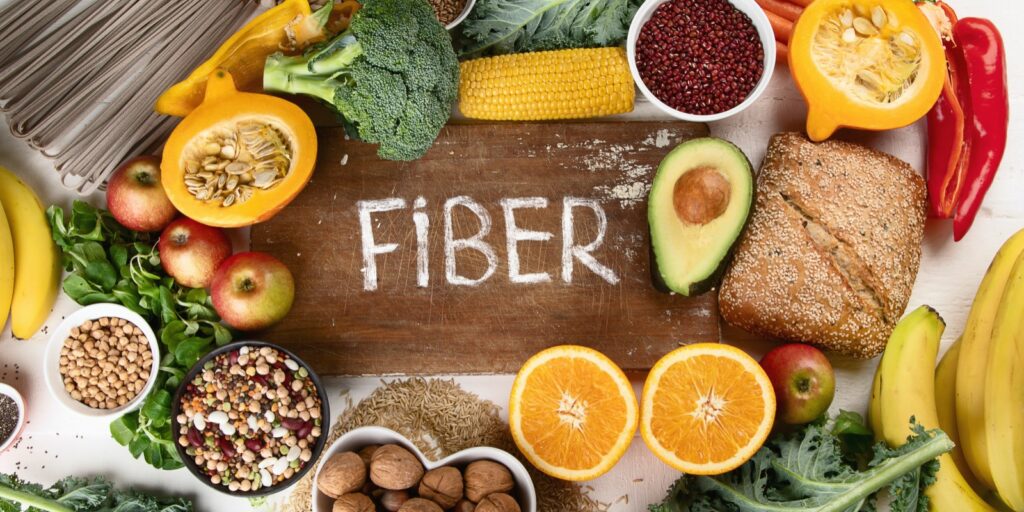
Fibre. It’s something that you know you need to be getting in, but are you consuming enough? Many aren’t – or they jump on the fibre bandwagon and go all in, consuming copious amounts overnight.
Don’t do either of these things.
Dietary fibre is an interesting thing. Enough of it can help your health tremendously but too much can cause problems. The trick with your fibre intake is to monitor how quickly you are adding it to your diet and to know your sweet spot.
For most people, somewhere around 25-30 grams per day tends to be ideal. But, if you are eating only 10 grams per day right now, don’t go jumping to that 30 gram/day number overnight.
Instead, add 2-5 grams per day and hold it there for 3-4 days. Then add another dose of 2-5 grams. This will help your body adjust and adapt, ensuring that you are not experiencing unwanted side effects.
Remember that you’ll want to get in both soluble as well as insoluble fibre when you consume it. This can be done by eating a balanced mix of fruits, vegetables and even some whole grains in moderation.
Beans are another excellent source of dietary fibre and contain both soluble and insoluble varieties.
5. Take A Quality Probiotic
If there’s one thing that you can do to not only improve your IBS symptoms, but also dramatically improve your health as well, taking a probiotic is it.
Most people do not currently have sufficient levels of healthy bacteria in their body and probiotics can help remedy this by growing your numbers.
A quality probiotic such as P3-OM will help you quickly multiple the levels of good bacteria you have present, allowing them to outnumber the levels of bad.
Remember, these bacteria are going to be key for not only helping you ensure that you can carry out digestive processes as you should but also for keeping your immune system strong.
Up to 80% of your immune system resides in your gut, so if it’s not up to where it should be, this may result in you falling ill more often and potentially even suffering from disease later on down the road.
Research published in the British Journal of Nutrition noted that upon administering probiotics to patients suffering from IBS, many of them noted that they showed improvements in both pain and flatulence.
Unless you are consuming a large amount of food that contains natural probiotics such as yogurts, miso soup, kombucha, or sauerkraut, adding them in through supplemental form will be your best option.
6. Exercise Regularly

Along with taking care of your nutrition, one must not forget the role that exercise will play in your overall digestive health. Keeping your body fit and in shape will also help keep all your systems in shape.
Research published in the Clinical Gastroenterology and Hepatology journal noted that when subjects were assessed for lifestyle and body weight and then monitored in terms of their overall IBS related symptoms, it was noted that having both a lower BMI as well as a higher intake of fruit and fibre along with a lower intake of fat and more exercise resulted in a lower incidence of pain and diarrhoea compared to heavier and less healthy counterparts.
Remember that you don’t necessarily have to perform heavy, long duration exercise to benefit either. Something as simple as taking a 20-30 minute walk most evenings of the week can yield excellent results and may help protect you against IBS related problems.
7. Address Potential Food Allergies

If you have never been for allergy testing, now might just be the time to do so. It turns out that according to the American Journal of Gastroenterology, there is a clear association between food allergies and symptoms of IBS.
Namely, if you have a food allergy and don’t realize it, eating those foods is likely to give you the unwanted IBS related response.
Many people live with food allergies for years without realizing it or doing anything about it. When you get tested, you’ll get a very clear idea of which specific foods are causing you problems and it can be a much faster way of going about things compared to the old process of simply removing foods from your diet and then adding them back in.
This is a long ‘trial and error’ method and while it can work, it can take months to complete – months where you could have been feeling better.
A simple allergy test is a far superior manner to go about achieving the same results.
8. Normalizing Zinc Deficiency

Another thing you need to remember is that when you do have a bad bout of diarrhoea, you are going to lose a lot of zinc from the body as a result of this.
If you are having flare ups quite regularly, this could potentially lead to chronic zinc deficiency, which can then go on to lead to other health problems.
One of the main things that you’ll want to do if you are suffering from IBS is to either consider adding more zinc rich foods back into your diet, or supplementing with zinc instead.
Good foods rich in zinc to consume include oysters, beef, shrimp, spinach, kidney beans and flaxseeds. Add at least one of these to your diet daily for optimal results.
9. Add Digestive Enzymes

Finally, the last thing that you can do to help combat IBS at least for the time being while your body heals itself is to use a high quality digestive enzyme product such as Masszymes. These digestive enzymes will assist with the breakdown and utilization of the foods you eat in your body, so as a result, you may notice fewer symptoms brewing.
Digestive enzymes can be used by everyday individuals as well as people who may be suffering from problems such as lactose intolerance. They are a good supplement to have on hand at all times and use for assurance sake.
Many people again don’t realize this and are missing out on the benefits they could provide. If you ever notice that you feel gassy and bloated after eating certain foods, without going to the extent of suffering from IBS related symptoms, there is a very good chance that taking digestive enzymes could help you.
-
P3-OM Probiotic Breakthrough
£14.99 – £159.99Price range: £14.99 through £159.99 — or subscribe to save 12%Rated 4.64 out of 5Select options This product has multiple variants. The options may be chosen on the product page
-
MassZymes & P3-OM Stack
£57.99 – £109.99Price range: £57.99 through £109.99Rated 4.68 out of 5Select options This product has multiple variants. The options may be chosen on the product page
Conclusion
So as you can see, there are many ways that you can effectively treat and manage your IBS symptoms. This isn’t a condition that you have to live with forever. By making a few smart changes in your overall diet plan and lifestyle, and by possibly adding a few wise supplements to your day, you can dramatically improve how you feel and put this issue behind you.
Remember that if you are seriously suffering from IBS, you will want to seek professional medical advice. Sometimes IBS can be a ride along symptom of a larger problem, so you always want to ensure that something bigger isn’t at play. Don’t take any chances with your health. Get checked out but do make sure that you don’t overlook natural treatment methods out there.
References:
Blanchard, Edward B., et al. “The role of stress in symptom exacerbation among IBS patients.” Journal of Psychosomatic research 64.2 (2008): 119-128.
Madden, J. A. J., and J. O. Hunter. “A review of the role of the gut microflora in irritable bowel syndrome and the effects of probiotics.” British Journal of Nutrition 88.S1 (2002): s67-s72.
Levy, Rona L., et al. “The association of gastrointestinal symptoms with weight, diet, and exercise in weight-loss program participants.” Clinical Gastroenterology and Hepatology 3.10 (2005): 992-996.
Böhn, Lena, et al. “Self-reported food-related gastrointestinal symptoms in IBS are common and associated with more severe symptoms and reduced quality of life.” The American journal of gastroenterology 108.5 (2013): 634-641.



